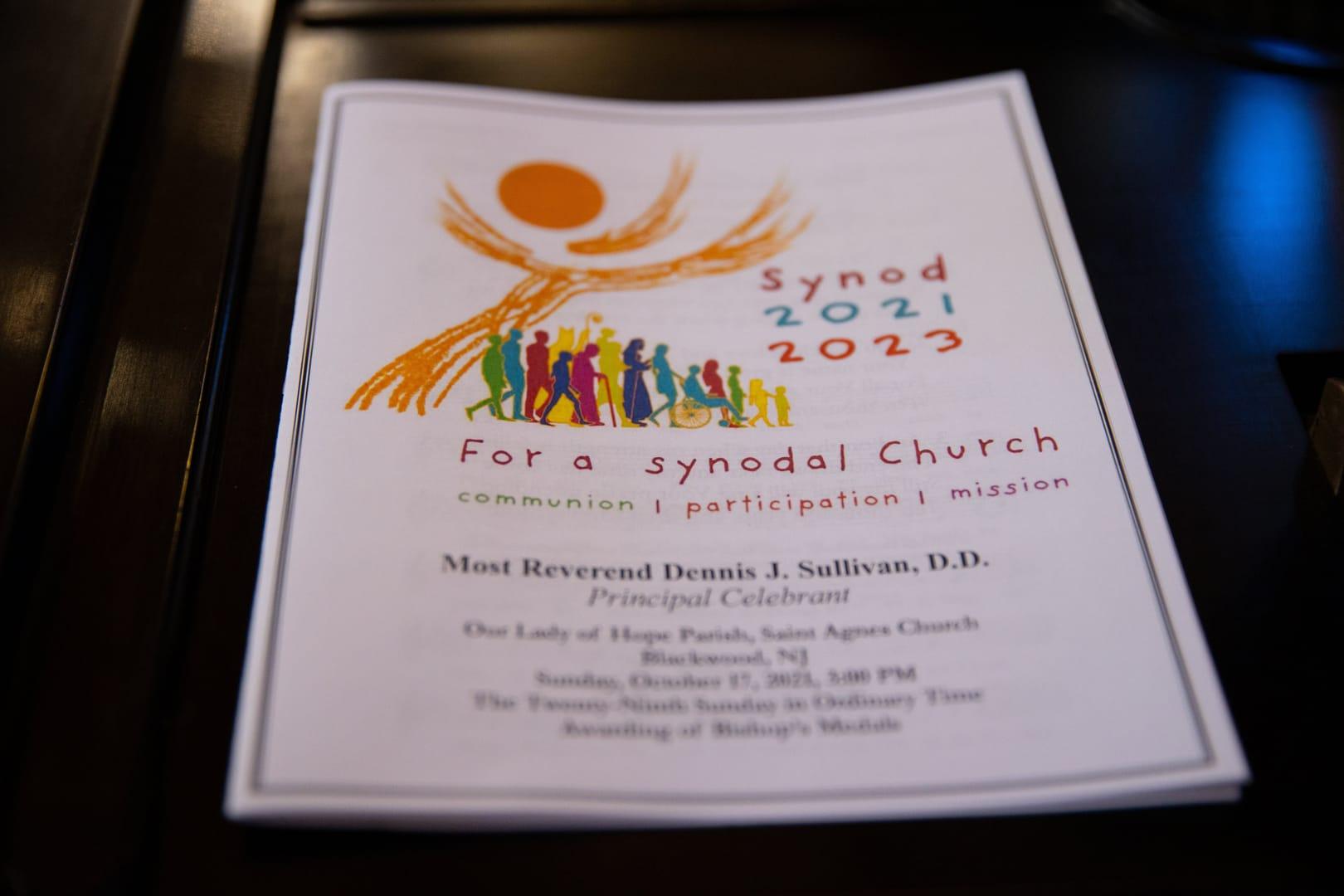NEW YORK – In response to Bishop Joseph Strickland’s claim that Pope Francis’s looming Synod of Bishops on Synodality risks unorthodox outcomes which could be “schismatic,” Jesuit Father James Martin, among the Americans chosen by Francis to attend the synod, questioned what is schismatic about “asking how the Church might grow?”
“I don’t think that asking how the Church might grow – as it has on many issues, like slavery, ecumenical relations, and so on – is in any way schismatic,” Martin, the editor-at-large of America Magazine and a longtime leader in outreach to LGBTQ+ Catholics, told Crux Aug. 24.
“In point of fact, this is a process that the Holy Father is asking us to participate in,” Martin explained. “In doing this, we are in union with the Successor of St. Peter, who is asking us to listen to the Holy Spirit. As such, it’s the definition of orthodoxy.”
Strickland, who leads the Diocese of Tyler, Texas, made the claims in a pastoral letter published Aug. 22, where he warns of “the evils that threaten us,” and highlights seven “basic truths” of the faith that are under threat because of the intentions of some involved with the synodal process.
According to Strickland, those “basic truths” include:
- That Christ established only the Catholic Church.
- That it is sacrilege for anyone to unworthily receive communion.
- That marriage is between one man and one woman.
- That every human person is created in the image and likeness of God and shouldn’t be supported in attempts to reject their biological identity.
- That sexual activity outside of marriage is a grave sin.
- That belief that all men and women will be saved regardless of how they live their lives is false and dangerous.
- That in order to follow Jesus Christ all must willingly choose to take up their cross.
“We must hold fast to these truths and be wary of any attempts to present an alternative to the Gospel of Jesus Christ, or to push for a faith that speaks of dialogue and brotherhood, while attempting to remove the fatherhood of God,” Strickland wrote. “When we seek to innovate upon what God in His great mercy has given us, we find ourselves upon treacherous ground.”
Strickland is perhaps the most publicly outspoken U.S. bishop in his criticism of Pope Francis, and hasn’t minced words about the synod, either. Earlier this year, after the Vatican released a document of suggested topics for discussion at the October synod assembly that included questions related to greater inclusion for LGBTQ+ people, married priests, and women deacons, Strickland called it a “travesty.”
“It is a travesty that these things are even proposed for discussion,” Strickland wrote on social media.
In his pastoral letter, he took it a step further, calling those who propose changes to the “basic truths” of the faith – that the suggested topics for discussion at the October synod go against – “schismatic.”
“Regrettably, it may be that some will label as ‘schismatics’ those who disagree with the changes being proposed,” Strickland wrote. “Be assured, however, that no one who remains firmly upon the plumb of our Catholic faith is a schismatic.”
“Instead, those who would propose changes to that which cannot be changed seek to commandeer Christ’s Church, and they are indeed the true schismatics,” Strickland added.
Martin is among 20 U.S. representatives that will attend the three-week synod gathering this October. In all, there will be more than 450 people present – including for the first time religious and lay men and women, who will discuss the questions and concerns raised by Catholics worldwide.
Martin is the only U.S. representative tapped to attend by Pope Francis who is not a bishop. Crux reached out to a number of the other representatives about Strickland’s letter, who either did not respond or declined to comment. The United States Conference of Catholic Bishops, which doesn’t typically comment on individual bishop statements, also declined to comment.
On Strickland’s claims, Martin noted that the synod participants have yet to even meet so it’s hard to say what people’s intentions are, but that the fact remains that the aforementioned working document raised “some important issues that the faithful from around the world have said deserve attention.”
As for his own view on the goal of the synod, Martin said simply: “To listen to the Holy Spirit, who is active and alive in the People of God.”
Follow John Lavenburg on Twitter: @johnlavenburg












